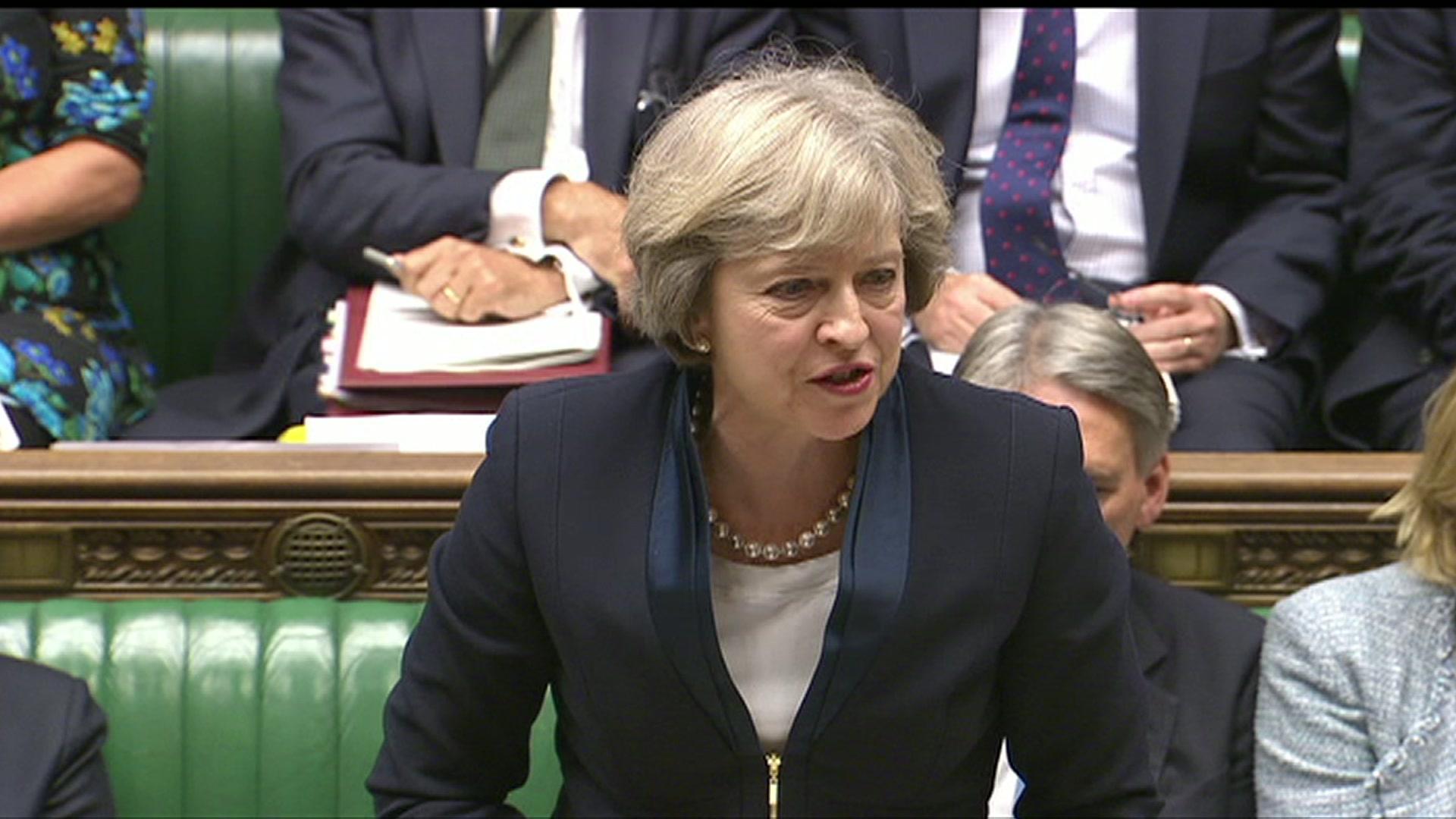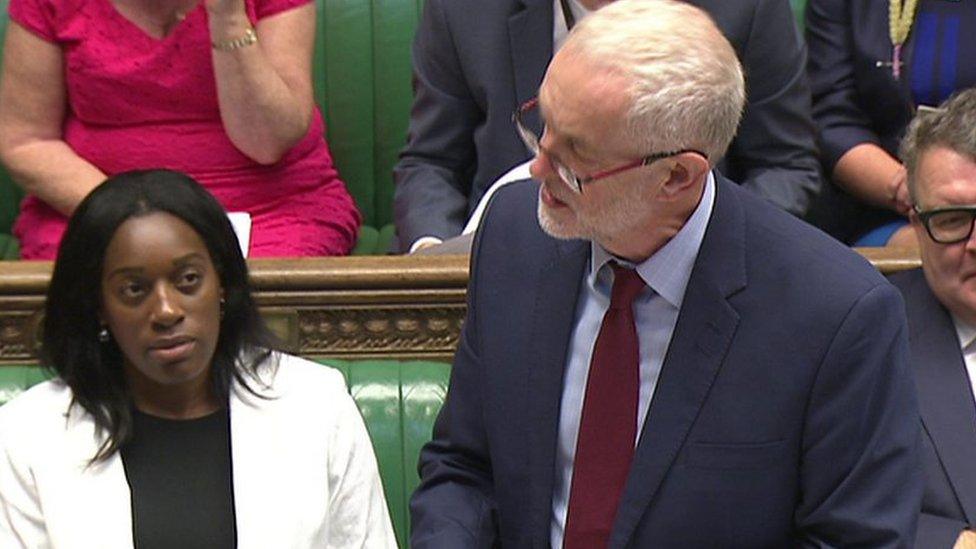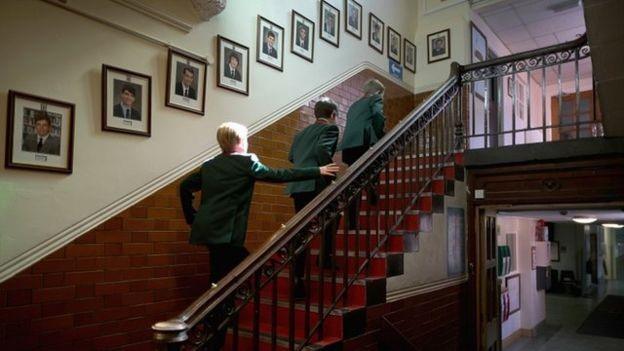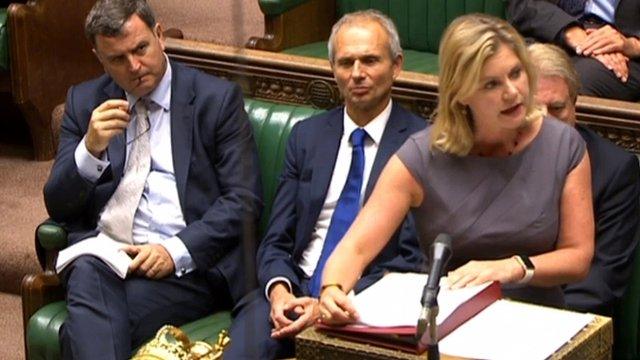Prime Minister's Questions: Corbyn attacks grammar school plan
- Published
The Tory leader reminded the Labour leader that they both went to grammar schools
Jeremy Corbyn and Theresa May have clashed in the Commons over government plans to expand grammar schools.
The Labour leader said it would lead to "failed segregation for the few and second class schooling for the many" in which children "could only lose out".
He suggested ex-PM David Cameron was among the many critics of the plans.
But Mrs May said she backed "levelling up, not down" in education and accused Labour of denying opportunities to others which they enjoyed themselves.
During exchanges at Prime Minister's Questions, Mrs May defended plans for more grammar schools and to allow existing state-funded schools to select pupils on the basis of academic ability.
'Ladder up'
She said 1.25 million pupils were currently in schools which were "failing, inadequate or in need of improvement" and the plans - allied to the expansion of faith schools and more obligations on private schools - would give every child the high-quality education they deserved to enable them to go as far as their talents allowed.
Noting that, like her, Mr Corbyn had himself gone to a grammar school, she accused Labour politicians of "stifling ambition and opportunity" and "taking the advantage of a good education for themselves and pulling up the ladder behind them".
"He went to a grammar school, I went to a grammar school. It is what got us to where we are today. My side may be slightly happier than his."
Mr Corbyn said it was not a question of pulling up the ladder, but ensuring all children, not just a few, were given a ladder up.
The Labour leader said the 11-plus test used to admit children to grammar schools was a "life-changing division" and cited statistics suggested children from low-income households performed more poorly in grammar school areas.
'Heading backwards'
Claiming the plans had united the entire education profession in opposition, Mr Corbyn pressed the PM to confirm how existing grammar schools in Kent and Buckinghamshire would be required to widen their admissions criteria.
"Why does the prime minister want to expand a system that can only let children down?
"Every child should have the best possible education they can have. We don't need and never should divide children at the age of 11, where the majority end up losing out.
"Isn't this a case of a government heading backwards to a failed segregation for the few and second class schooling for the many. Can't we do better than this?"
Speculating that it may be Mr Corbyn's last PMQs as Labour leader - this was the last session before the outcome of the current leadership contest is announced - Mrs May said that whoever won the contest "the country would lose out".
BBC political editor Laura Kuenssberg said it had been Mr Corbyn's most effective PMQs performance "for ages".
She said grammar schools were a risky and complex policy for the government, adding that Mrs May's "big problem" in getting it through the Commons was that Labour was "united" on the policy and the Tories were split.
During PMQs, Mrs May also paid tribute to her predecessor David Cameron following his decision to step down as an MP, praising his "tremendous" record of public service.
But Mr Corbyn, who welcomed the fall in unemployment during the session, suggested there was a rift between the two over grammar schools, citing comments the former PM made when he was opposition leader opposing the growth of selection education.
- Published14 September 2016

- Published14 September 2016

- Published14 September 2016

- Published12 September 2016
